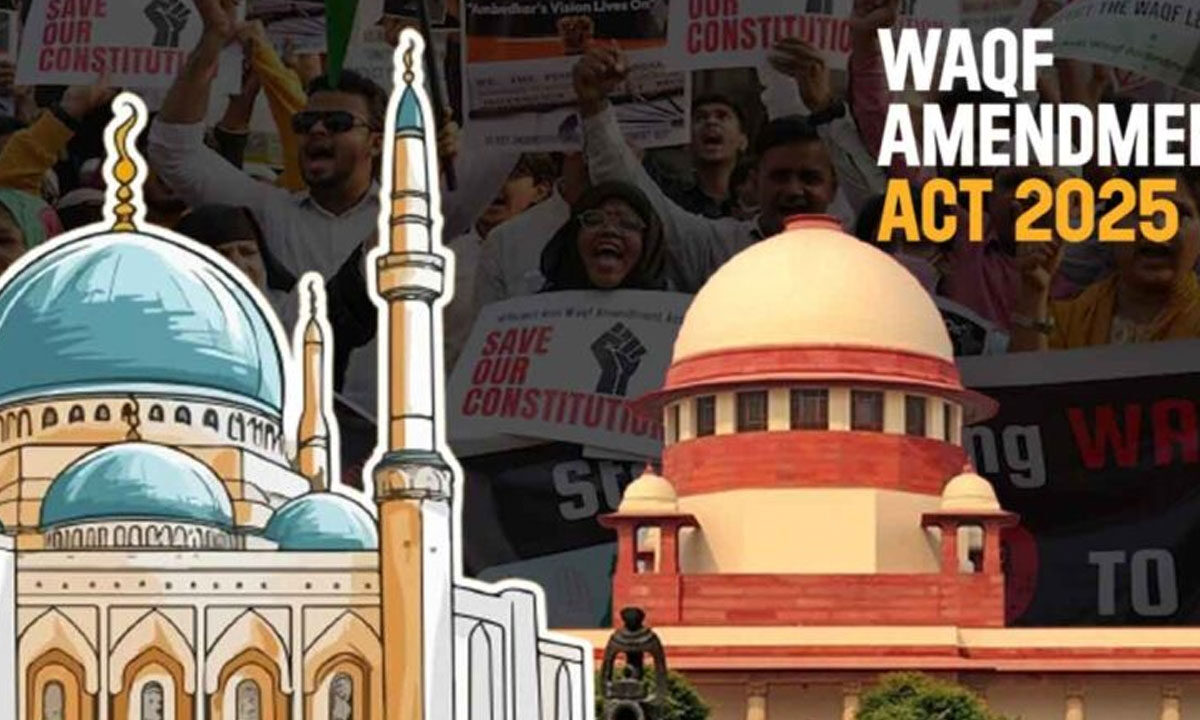Supreme Court Puts Brake on Waqf Property De-Notification under 2025 Amendment, Issues Interim Order
The bench, comprising Chief Justice Sanjiv Khanna and Justice Dipankar Datta, heard a batch of petitions challenging the constitutionality of the Waqf (Amendment) Act, 2025. The court stated that:

New Delhi: In a significant development, the Supreme Court of India today issued an interim order that restrains authorities from declaring any waqf property—whether for public or private use—as “non-waqf” under the newly enacted Waqf (Amendment) Act, 2025, until a final decision is made in the ongoing constitutional challenge.
The bench, comprising Chief Justice Sanjiv Khanna and Justice Dipankar Datta, heard a batch of petitions challenging the constitutionality of the Waqf (Amendment) Act, 2025. The court stated that:
- No waqf property, whether waqf-alal-aulad (family waqf) or for public religious use, shall be de-notified or declared non-waqf until further orders.
- The status quo of all such properties must be maintained regardless of any inquiries being conducted.
- However, district collectors may proceed with fact-finding inquiries where necessary, but their findings will not change the waqf status until the court rules.
The Chief Justice strongly emphasized the need to protect longstanding waqf institutions, citing the example of the historic Jama Masjid, and posed a question:
“How can a property donated centuries ago be asked to go through re-registration again today?”
He further noted that equitable balance must be maintained, and underlined that religious freedoms under Article 25 and the right to manage religious institutions under Article 26 of the Constitution are central to the challenge.
During the proceedings, senior advocates Kapil Sibal, Rajeev Dhavan, Dr. A.M. Singhvi, C.U. Singh, and Sanjay Hegde argued extensively against the Act. They submitted that the new provisions, especially the role given to district collectors to review waqf status and the restriction of Waqf Board/Central Waqf Council memberships, violate constitutional protections and undermine religious autonomy.
Another key issue was the inclusion of non-Muslims in Waqf boards, which the bench clarified should not happen under the current circumstances—only Muslims shall serve as board and council members, except in the case of retired government officials.
The matter was tagged with similar challenges filed against the 1995 and 2013 Waqf Acts, and the court scheduled further hearings after the summer vacation. The Union Government has been directed to file its counter-affidavit.

